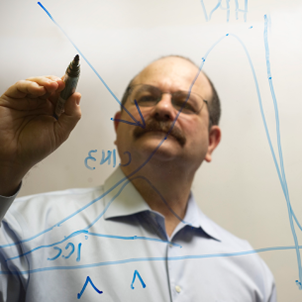
Dr. Mark Schiffman is an Epidemiologist at the National Health Institute (NIH), USA. Dr. Schiffman received an MD from the University of Pennsylvania and an MPH in Epidemiology from the Johns Hopkins School of Hygiene and Public Health. In 1983, he joined the National Cancer Institute (NCI) as a Staff Fellow and in 1996, he was appointed Chief of the Interdisciplinary Studies Section in the Environmental Epidemiology Branch (later the HPV Research Group, in the Hormonal and Reproductive Epidemiology Branch). In 2009, he joined the Clinical Genetics Branch to study HPV and its powerful carcinogenic nature.
Dr. Schiffman received a Fulbright Scholarship in 1977 to carry out epidemiologic studies in Senegal. He has received numerous awards for his work in molecular epidemiology, including the ACS Medal of Honor and the AACR Prevent Cancer Foundation Award.
When/where do you get your best ideas?
Best – or new – ideas are rare events for me. In general, at least in epidemiology, multiple investigators are able to recognise the next logical research step or idea. But I don’t aim for a breakthrough as much as I try to avoid careless, sloppy thinking. It’s important to avoid going backwards or sideways in wrong turns. This takes substantial concentration and self-critique. I reject most ideas I generate: a lot of thoughts fall apart on further examination.
Very rarely I have generated a novel research idea. It is a creative process that feels different from daily work. It’s clichéd but true: I get novel ideas after I stop trying to force it. It can while be walking, or falling asleep, or taking a shower. But I am usually not at the computer. After a period of seemingly fruitless concentration, a solution or synthesis arrives, and feels pleasantly and “intuitively” right. It arrives whole and self-evident.
It is especially enjoyable to brainstorm collectively with colleagues. Hanging out with smart colleagues, and sharing a Eureka Moment is a “rush”. The 40 or so years of clarifying the natural history of HPV and cervical cancer, together as an international group, have flown by. We were able to solve an important puzzle collectively, combining laboratory and epidemiology methods. At each meeting, we would hear progress from someone. With that said, our success has been lucky as hard work does not automatically guarantee discovery.
What is the best piece of advice (work or life) you’ve been given?
The best advice I’ve been given came in a hallway moment early in my NCI (National Cancer Institute) career. I’ll be 70 soon. I was waiting for an elevator with a very senior epidemiologist (around the age I am now), he seemed both happy and energetic. I asked him how he managed to stay so interested after so many decades. At that time, I was having trouble sitting at a desk in a quiet epidemiology office, having instead pictured myself as a field epidemiologist investigating disease outbreaks and epidemics.
His advice: “Pick a problem in science or medicine and make it your own. Engage your curiosity and dedication. If you choose well, it won’t feel like work.”
I’ve spent 40+ years working on HPV and cervical carcinogenesis. He was right: I get the variety I need as the research gets deeper.
I’m inspired most by…
…having the chance to reduce suffering in a lot of people I’ll never meet, i.e. the general population. It sounds like an insincere platitude, but it actually defines my strengths and weaknesses. My parents both died from cancer, so my motivation is obvious. I think of the population as real people, like my parents, counting on me. My parents always stressed the importance of social responsibility. At present, the world seems to be getting meaner. People have various coping strategies. If I can believe I am preventing cancer and doing good, it feels like a good struggle. It’s something that I lean into amidst a world in increasing turmoil.
What’s an event that changed your life?
I spent a school year in Senegal doing public health work before starting medical school, having long been interested in global health. It was an eye-opening year, and the stark inequities had a big impact on my worldview and career goals.
What if we applied the ‘Golden Rule’ in global health seriously? With proper commitment to this idea of reciprocity in global health, we have the potential to control cervical cancer on a global scale. I want to remain a part of that effort.
My favorite paper is…
Our paper showing how evolution has shaped the behaviour of the hundreds of HPV strains. Only a single clade of related alpha papillomaviruses are carcinogenic. That means only a dozen strains – from a total of hundreds – are cancer-causing. The paper was rejected five times but eventually accepted: to me, it is a true blend of science and medicine, that was possible only through interdisciplinary teamwork.
.
The views expressed are those of the author. Posting of the blog does not signify that the Cancer Prevention Group endorses those views or opinions.
